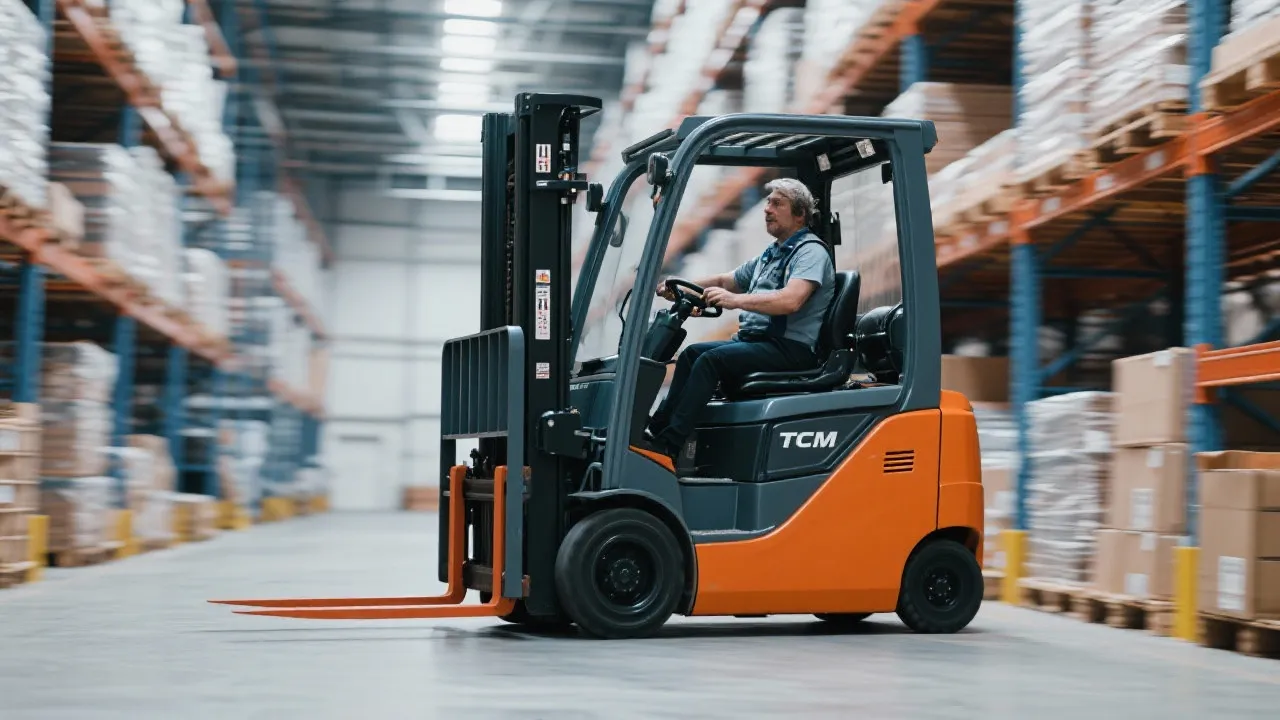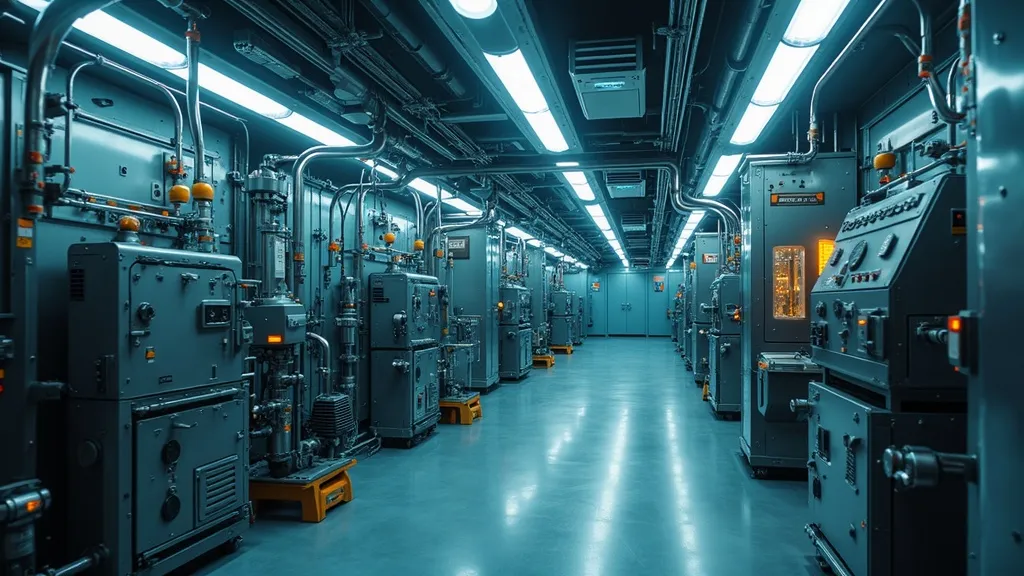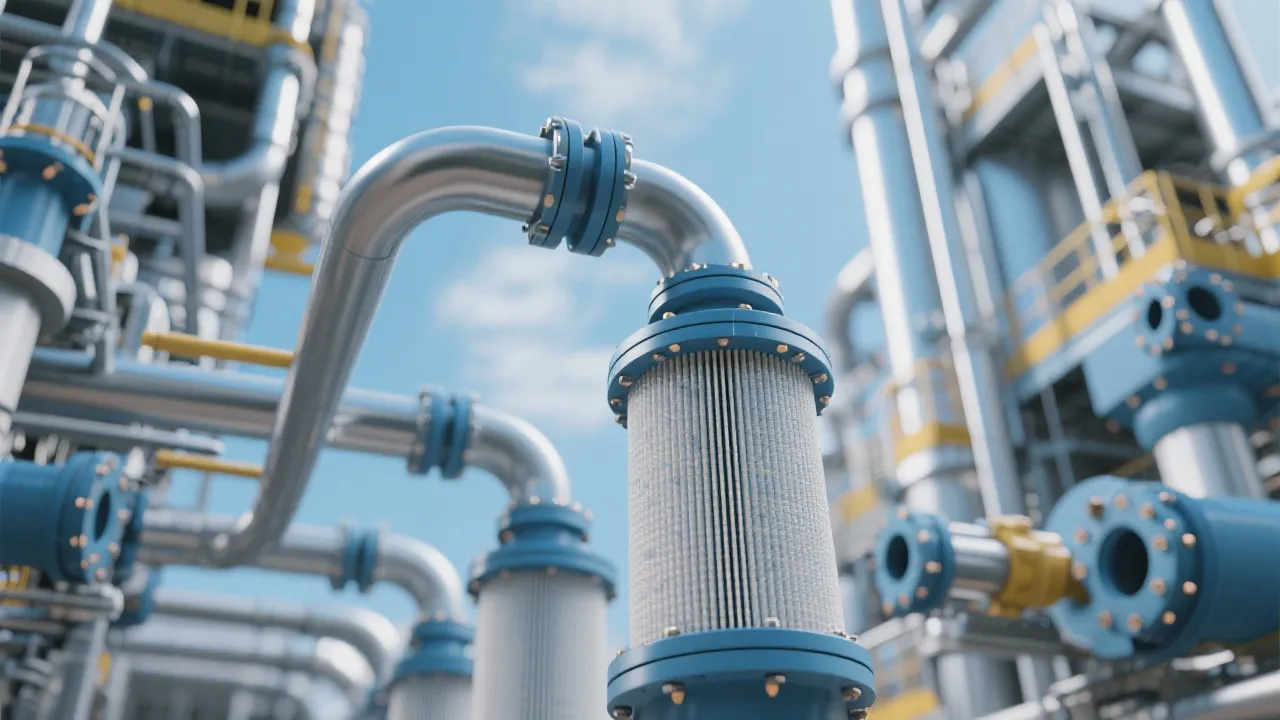The article delves into the world of TCM Forklifts, exploring their reputation in the materials handling industry. Recognized for their reliability and efficiency, TCM Forklifts are indispensable in warehouse operations, contributing significantly to the streamlining of logistics and material management processes. Their integration in modern warehouses is discussed, along with expert insights and key operational top practices.

TCM Forklifts have carved a niche in the materials handling industry due to their reliable performance and robust construction. Known for their durability and efficiency, they are an essential asset in warehouses and manufacturing facilities, playing a vital role in efficient logistics management. Leveraging decades of engineering excellence, TCM Forklifts are designed to handle a wide range of materials safely and efficiently, making them a preferred choice globally. One of the standout elements of TCM Forklifts is their ability to adapt to different environments and tasks, showcasing a versatility that makes them suitable for various industries. Whether it's in a manufacturing setting or in a busy warehouse, these forklifts bring much-needed functionality and reliability to the table.
TCM Forklifts come equipped with advanced features that enhance operational efficiency and safety. Their ergonomic design minimizes operator fatigue while maximizing productivity. Key features include precision control systems, enhanced load capacity, and environmentally friendly engines that adhere to strict emission standards. Moreover, each fork lift is equipped with advanced safety features such as automatic braking systems and stability control to prevent tipping and accidents. Furthermore, TCM offers various models to suit different operations, from compact electric forklifts suitable for indoor use to powerful diesel models for outdoor applications. This broad range allows businesses to select the right equipment that aligns with their specific operational needs and environmental conditions.
Operating a TCM Forklift involves more than just maneuvering materials from point A to B. Operators should be trained in understanding load limits, spatial awareness, and maintenance protocols to ensure longevity and optimal performance. Regular maintenance checks are paramount, focusing on hydraulic systems, brakes, and wheel alignments to prevent downtimes and safety hazards. Comprehensive training programs for operators not only cover basic operation but also delve into advanced skills such as handling complex lifting tasks and navigating through tight warehouse spaces. Skilled operators contribute significantly to maintaining workflow and minimizing the risk of accidents, which ultimately boosts overall productivity. Additionally, facilities are encouraged to create a routine maintenance schedule that includes daily checks before operation and more detailed inspections on a regular basis to fortify the equipment’s performance throughout its lifecycle.
| Model | Fuel Type | Lift Capacity | Top Suited For |
|---|---|---|---|
| FD Series | Diesel | Up to 5,000 kg | Outdoor and heavy-duty operations |
| FB Series | Electric | Up to 3,000 kg | Indoor, environmentally-sensitive areas |
| FG Series | Gasoline | Up to 4,500 kg | Flexible use both indoors and outdoors |
Each series serves distinct operational needs; for instance, the FD Series, with its robust diesel engine, is ideal for outdoor settings where heavy loads are common, while the FB Series is tailored for indoor use, shining in environments where emissions are a concern. Additionally, the FG Series offers versatile applications making it the go-to choice for businesses that operate across various terrains. Understanding the specifications of these models helps businesses make informed decisions based on their unique handling capabilities and environmental requirements.
Acquiring a TCM Forklift involves considering factors like operational needs, budget constraints, and supplier reputation. With many suppliers offering these forklifts, a detailed evaluation based on after-sales services, warranties, and post-purchase support is recommended. It is critical to assess the reliability of parts supplied, as using genuine parts can significantly impact the durability and performance of TCM Forklifts. Buying from certified dealers ensures genuine parts and reliable customer service, which is crucial for maintenance and repairs. Moreover, potential buyers should explore leasing options, especially if they have fluctuating operational needs or seasonal demands. Leasing can provide flexibility without the heavy upfront costs associated with purchasing new equipment. Furthermore, exploring used TCM Forklifts can also be cost-effective, provided that thorough inspections and evaluations are conducted to ensure the equipment is in good working condition.
TCM Forklifts represent a versatile and reliable choice for warehouses and industrial settings worldwide. With continuous innovations and a focus on safety and efficiency, they are expected to maintain their position at the forefront of the industry. It’s essential for operators and facility managers to stay informed on the latest models and maintenance protocols to enhance productivity and ensure operational safety. As the logistics landscape evolves with technological advancements and growing efficiency requirements, being knowledgeable about equipment like TCM Forklifts allows for smarter investments. Operators can leverage the capabilities of TCM Forklifts to boost their operational effectiveness significantly. Overall, investing in quality forklifts not only enhances material handling but also plays a critical role in optimizing warehouse spaces and contributing to the overall operational success.
TCM Forklifts are utilized across a wide range of industries, showcasing their versatility and adaptability. In industries such as construction, these forklifts are often employed to transport heavy materials like bricks, timber, and steel beams across job sites. Their robust design and high lifting capabilities allow them to handle the demanding conditions of outdoor construction work efficiently. In manufacturing, TCM Forklifts are a crucial asset in the assembly line and production areas, moving materials from storage to various stages of production. Their precision and reliability help prevent bottlenecks in manufacturing processes, essential for maintaining production timelines.
In the retail sector, especially in large warehouse-style stores, TCM Forklifts support movement and organization of inventory. Their compact designs enable them to navigate narrow aisles and tight spaces, ensuring that goods are stocked efficiently and accessible for order fulfillment. Furthermore, the food and beverage industry also benefits from TCM Forklifts, where sanitation and environmental standards are paramount. Here, electric models are often preferred for their zero-emission advantages, contributing to a cleaner working environment while ensuring tasks such as loading, unloading, and transporting perishables are handled with care.
As industries evolve, the demand for improved forklift technology continues to rise. The incorporation of autonomous technology is becoming popular, allowing forklifts to operate with minimal human intervention. TCM Forklifts are foraying into this realm, exploring opportunities in automated material handling solutions that enhance efficiency and reduce labor costs. With advancements in artificial intelligence and machine learning, future TCM Forklift models may integrate smart navigation systems, predictive maintenance alerts, and real-time load monitoring, further improving operational efficiency.
Additionally, sustainability will take center stage as companies strive to reduce their carbon footprints. Expect to see more development in electric models, providing longer run times and faster charging capabilities. Innovations such as energy recovery systems, which capture energy from the lifting and lowering of loads, could significantly enhance the operational efficiency of electric forklifts. Enhancements in battery technology will play a critical role here, supporting longer operational hours and reduced downtime for charging.
Moreover, collaboration tools and connectivity features are expected to become commonplace in TCM Forklifts, allowing operators and managers to monitor performance data in real-time, leading to informed decision-making and enhanced productivity. By adopting an integrated approach to material handling, TCM Forklifts are set to remain at the forefront of the industry, supporting businesses as they navigate future challenges and opportunities.
Implementing structured operator training programs for TCM Forklifts is vital not only for safety but also for efficiency in operations. These programs encompass several components including safety regulations, proper operation techniques, and hands-on training with the specific models being used. Training usually adheres to OSHA standards, ensuring operators understand the hazards associated with forklift operation and how to mitigatively respond.
A significant aspect of these training programs includes simulated exercises with the forklifts, allowing operators to practice their skills in a controlled environment before transitioning to real-world tasks. Additionally, program modules often highlight the importance of conducting pre-operation checks, understanding the forklift’s load capacity, and maintaining proper load balance to prevent tipping, which is crucial for safety.
Certification programs typically culminate in evaluations where operators must demonstrate their proficiency in safe and efficient material handling, ensuring that they can perform their duties competently and confidently. Offering continuous education and retraining opportunities further reinforces good practices, accommodating refreshers on safety and introducing operators to new technology or updated protocols as they evolve.
To gauge the efficacy of TCM Forklifts in operations, businesses often employ various performance metrics ranging from fuel efficiency to operator performance and maintenance schedules. Fuel efficiency metrics can indicate how well the forklifts are adapted to their work environments and may lead to cost savings over time by optimizing fuel usage depending on tasks performed.
Operator performance metrics are directly tied to training and proficiency; assessing how effectively operators handle loads, navigate tight spaces, and respond to real-time challenges can shed light on the effectiveness of training programs and overall operational effectiveness. Furthermore, monitoring maintenance schedules against operational efficiency can reveal insights into potential downtimes or excessive repairs, prompting potential interventions such as revisiting maintenance schedules or investing in additional training for operators.
Through tracking and analyzing these performance metrics, businesses using TCM Forklifts can make informed decisions about their operations, ensuring they continue to optimize various processes and ultimately enhance their overall productivity.
Navigating Online Bank Accounts

Understanding AC 380 Systems

Discovering the Tiguan's Versatility

Integrating Usaepay with WooCommerce

Understanding BA 270 Concepts

Understanding AMQ 6209 in Detail

Understanding Hydac RF Filtration Systems

Understanding the BA 270 Course

Navigating the Realm of Business Communication
